Top 8 Coaching Resources Every Coach Needs in 2025
The world of coaching is transforming rapidly in 2025. Technology, shifting client needs, and heightened expectations are raising the bar for every coach. Staying competitive now requires more than skill—it demands the right coaching resources.
This article reveals the top 8 essential coaching resources every coach needs to excel, drive real results, and fuel professional growth. From dynamic digital learning platforms to data-driven assessment tools and compliance-focused leadership programs, you will discover the resources that define coaching excellence.
Explore these curated coaching resources to stay ahead, maximize impact, and build a thriving coaching practice in 2025.
The Evolving Needs of Coaches in 2025
The coaching landscape in 2025 is transforming at an unprecedented pace. With technology reshaping how professionals connect and remote work becoming the norm, coaches are finding themselves navigating a world of constant change. To remain effective, they must adapt quickly to new ways of working and embrace a broader set of coaching resources.
Clients today expect more than just guidance. They seek specialized expertise tailored to their unique situations, whether it is executive leadership, wellness, diversity, equity, and inclusion, or digital transformation. As a result, coaching resources must support deeper knowledge in these emerging niches. Evidence-based approaches are now the standard, with measurable outcomes being demanded by both clients and organizations.
On a global scale, the demand for scalable, flexible, and accessible coaching resources is rising. Coaches serve clients across continents and time zones, making digital platforms and virtual tools essential for modern practice. According to insights from the Coaching Industry Report 2025 by SIIT, the industry is experiencing significant growth, with professional development and lifelong learning seen as critical drivers of success. Coaches who continuously invest in their own learning stay ahead of trends and maintain their competitive edge.
Artificial intelligence, advanced analytics, and evolving compliance standards are now integral to effective coaching. AI-powered tools help analyze client progress, personalize development plans, and ensure compliance with industry regulations. To thrive, coaches must leverage a mix of digital, community-based, assessment, and leadership program resources. Embracing this diversity not only enhances client outcomes but also supports sustainable business growth.
Top 8 Coaching Resources Every Coach Needs in 2025
The landscape of coaching resources is transforming rapidly as we head into 2025. Staying current means leveraging the most effective coaching resources to maximize client outcomes, maintain professional growth, and keep your edge in a competitive market.
Below, you’ll find the definitive list of the top 8 coaching resources every coach should consider. Each resource is selected for its proven impact, scalability, and relevance to evolving coaching needs. Whether you’re an executive coach, HR leader, or new to the field, these coaching resources will empower you to deliver measurable results and stay ahead of industry trends.
LinkedIn Learning – Coaching and Leadership Courses
LinkedIn Learning remains a cornerstone in the world of coaching resources for 2025. Its subscription-based model offers flexibility, with pricing varying by region and free access for many enterprise or education partners.
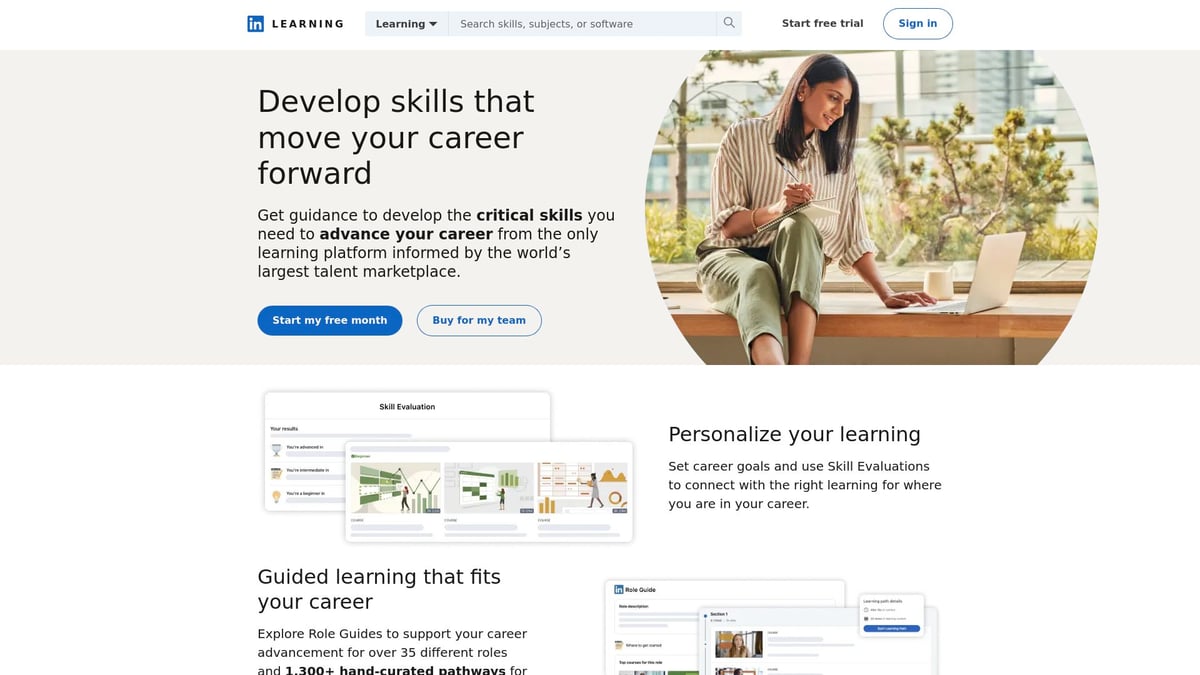
Core Features:
- On-demand video courses
- Expert instructors
- Certifications upon completion
- Mobile app for learning on the go
Key Benefits:
Coaches benefit from immediate access to up-to-date content on coaching, leadership, and management. The platform’s practical exercises and recognized certifications help coaches demonstrate mastery and boost their credibility.
Target Audience:
- Coaches seeking ongoing education
- HR professionals and team leaders
- Anyone looking to expand their coaching resources toolkit
Pros:
- Wide range of topics
- Flexible, self-paced learning
- Industry recognition
Cons:
- Content may be too generalized for highly specialized coaching needs
Example:
“Coaching and Developing Employees” by Lisa Gates is a standout course, providing actionable insights for both new and seasoned coaches. As coaching resources evolve, LinkedIn Learning’s constantly updated library ensures relevance and reliability.
Noomii Corporate Leadership Program
The Noomii Corporate Leadership Program is redefining organizational coaching resources. With custom pricing tailored to organization size and scope, it delivers advanced diagnostics, coach matching, and targeted interventions.
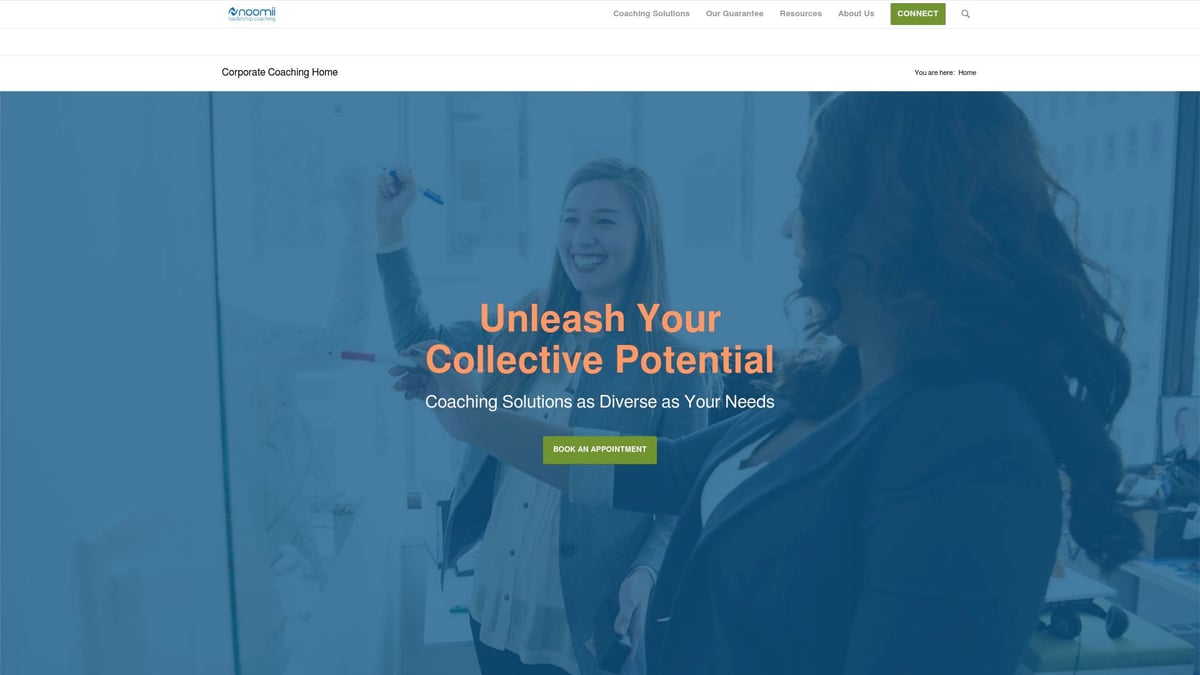
Core Features:
- Leadership diagnostics
- Precision coach matching
- Intervention planning
- Compliance/governance alignment
- Scalable impact measurement
Key Benefits:
Noomii’s focus on evidence-based practices and measurable ROI makes it a top choice for enterprise coaching resources. The platform supports a global network of certified coaches and integrates seamlessly with existing HR frameworks.
Target Audience:
- Corporate and executive coaches
- HR leaders
- Government agencies
- Fortune 500 companies
Pros:
- Customizable solutions
- Strong compliance and governance focus
- Integration with organizational systems
Cons:
- Primarily designed for organizational, not individual, coaching
Example:
Fortune 500 companies and government agencies leverage Noomii to drive leadership transformation and accountability, making it a gold standard among coaching resources for organizations.
Coursera – Coaching Specializations
Coursera stands out among coaching resources with its university-led specializations. Coaches can audit courses for free, with certification fees typically ranging from $39 to $79 per month.
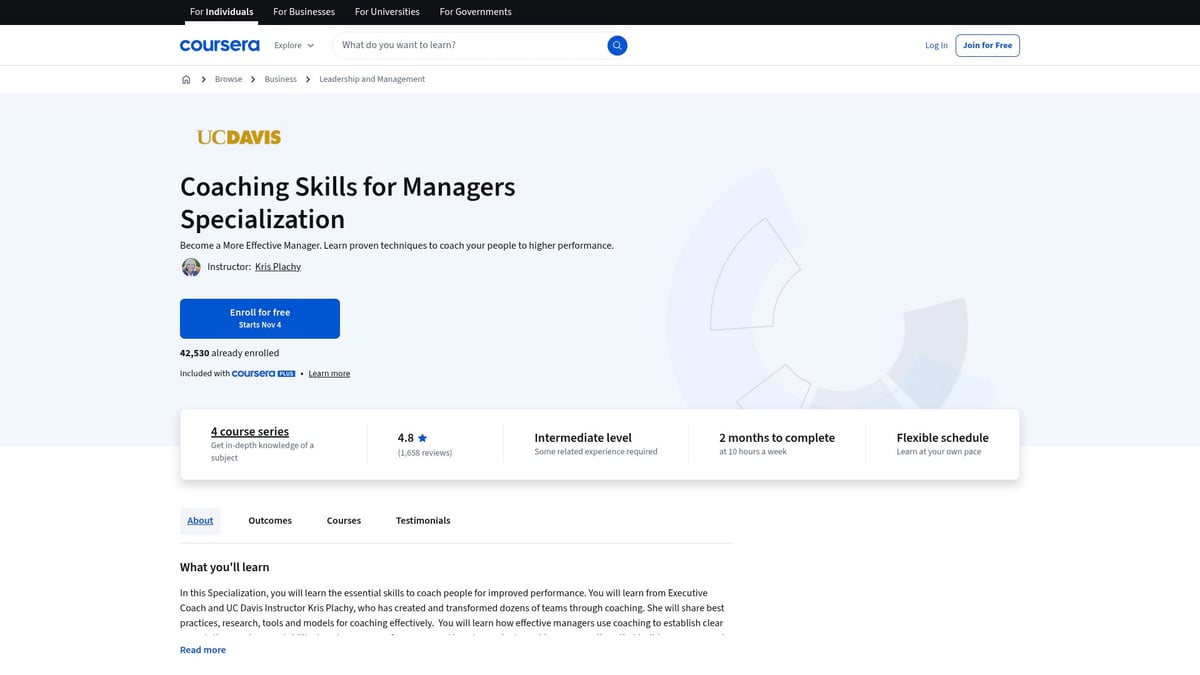
Core Features:
- Structured university courses
- Peer discussion forums
- Graded assignments
- Specializations in coaching skills
Key Benefits:
Coursera offers structured, globally recognized coaching resources. Practical scenarios and assignments foster real-world application, while flexible pacing accommodates busy professionals.
Target Audience:
- New and experienced coaches
- Managers and professionals seeking certification
Pros:
- Academic credibility
- Diverse course offerings
- Flexible learning paths
Cons:
- Requires self-motivation and time management
- Some courses have prerequisites
Example:
The “Coaching Skills for Managers” specialization by UC Davis is a prime example of coaching resources that blend theory and practice, ideal for those seeking a strong foundation.
Institute of Coaching – Research & Resource Library
The Institute of Coaching provides one of the most comprehensive coaching resources libraries available. With free and paid membership tiers, users access over 1,000 research-backed resources.
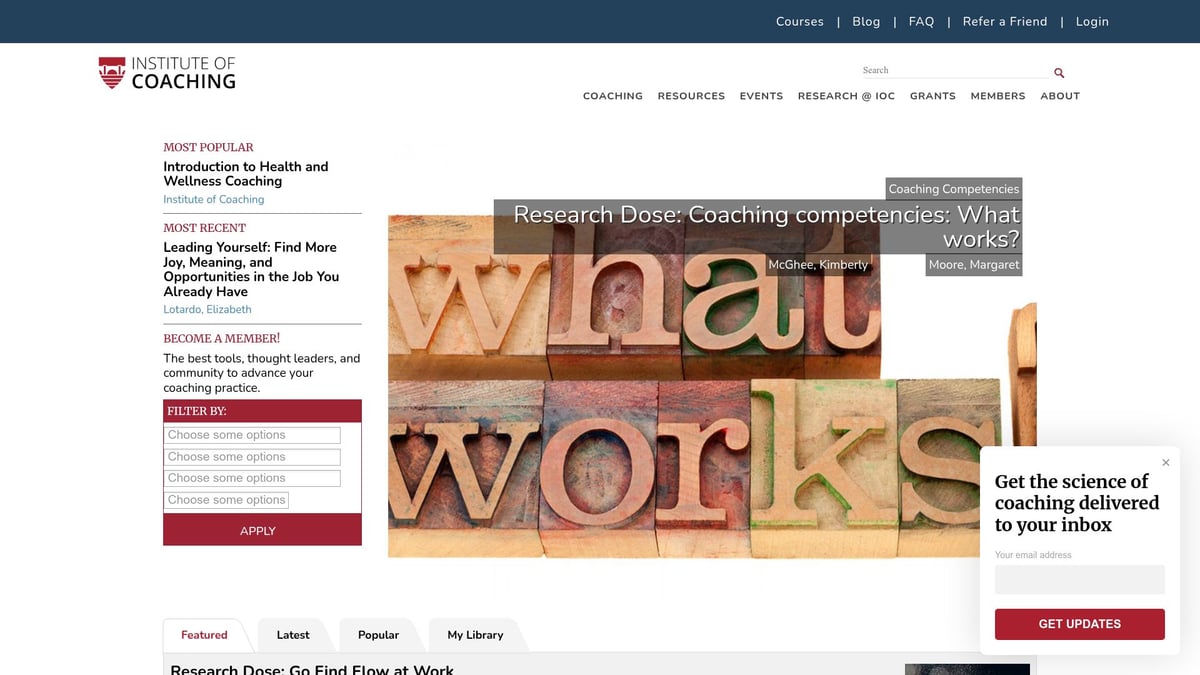
Core Features:
- Extensive research reports
- Webinars and podcasts
- Journals and expert interviews
Key Benefits:
As coaching resources become more evidence-driven, this library offers unparalleled depth and quality. Coaches can stay ahead with the latest in coaching science and connect through community events.
Target Audience:
- Professional coaches
- Researchers
- Organizational leaders
Pros:
- Focus on evidence-based practices
- Quality and variety of resources
- Active community
Cons:
- Some content requires membership
- May overwhelm beginners
Example:
Access to “Coaching for Performance” and the latest coaching trends keeps professionals at the forefront of coaching resources and methodologies.
GROW Model Resources Guide – UC Office of the President
The GROW Model Resources Guide is an essential free resource, offering a clear and actionable coaching framework. Coaches can download the guide at no cost.
Core Features:
- Step-by-step coaching framework
- Practical templates
- Real-world application examples
Key Benefits:
This resource distills coaching into a simple, widely adopted model. It provides templates and examples that integrate effortlessly into daily coaching resources and routines.
Target Audience:
- Coaches at all experience levels
- Managers and educators
Pros:
- Universally recognized framework
- Adaptable to various scenarios
Cons:
- May need supplementary materials for advanced use
Example:
Universities and corporations use the GROW Model as a foundational part of their coaching resources, ensuring consistent and effective client outcomes.
BetterUp – Digital Coaching Platform
BetterUp has established itself as a leader in digital coaching resources, offering enterprise and individual solutions. Pricing is custom for organizations, with individual plans also available.
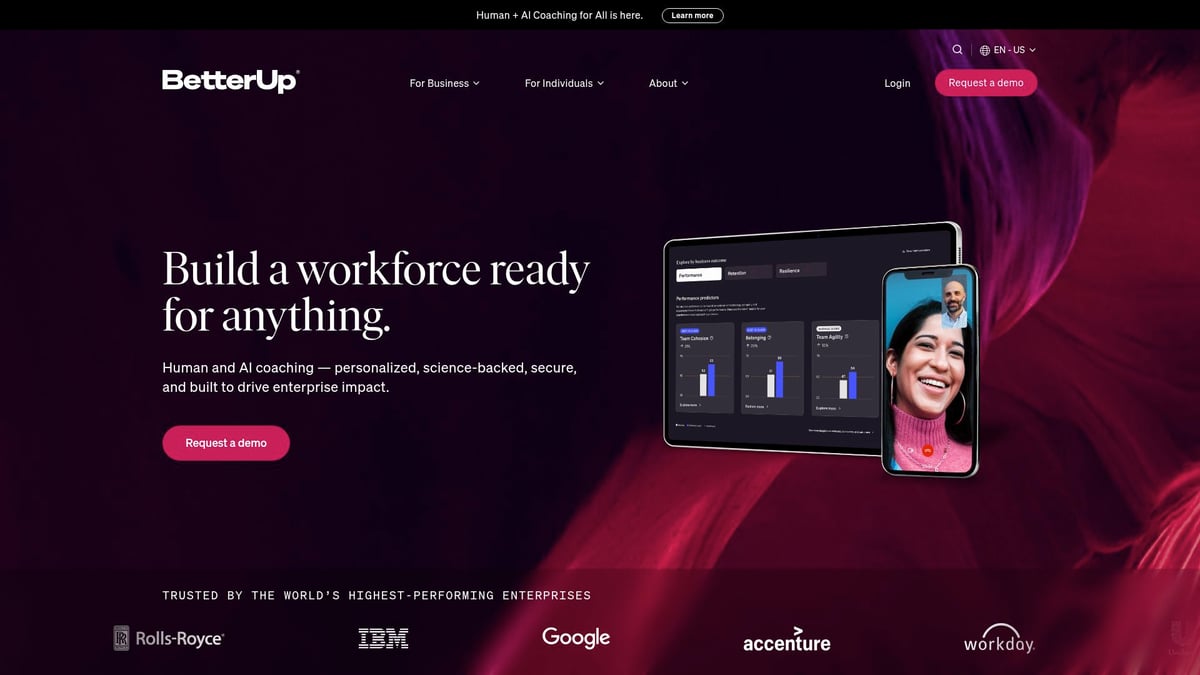
Core Features:
- AI-powered coach matching
- Personalized development plans
- Progress tracking and analytics
- Mobile app access
Key Benefits:
BetterUp’s coaching resources provide scalable solutions with data-driven insights, helping organizations and individuals achieve measurable growth and development.
Target Audience:
- Organizations and HR teams
- Professionals seeking virtual coaching
Pros:
- Flexible scheduling
- Global network of coaches
- Measurable outcomes
Cons:
- Premium pricing
- Focused primarily on enterprise clients
Example:
Leading tech companies adopt BetterUp for leadership development, making it a premier choice for cutting-edge coaching resources.
Harvard Business Review – Coaching Articles & Research
Harvard Business Review (HBR) is a trusted source for high-quality coaching resources. While some articles are free, full access requires a subscription.
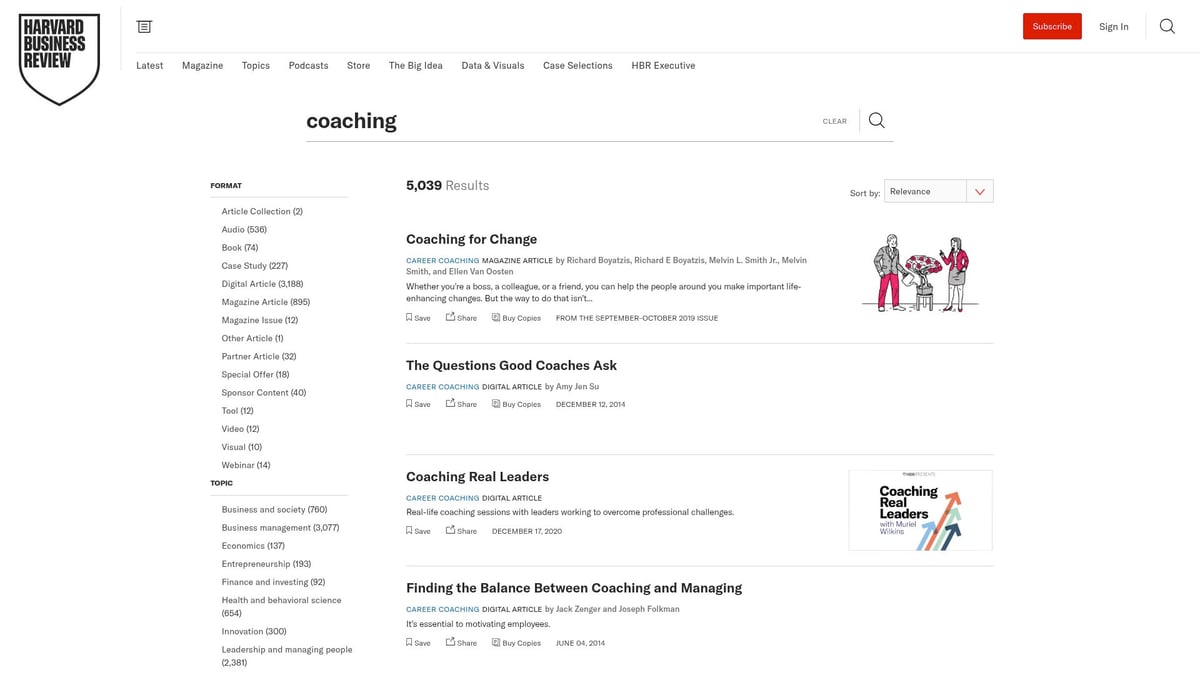
Core Features:
- In-depth articles and case studies
- Expert interviews
- Best practice guides
Key Benefits:
HBR’s coaching resources deliver thought leadership and actionable insights. The global perspective and editorial standards ensure coaches receive relevant, timely information.
Target Audience:
- Coaches and managers
- Business leaders
- Researchers
Pros:
- High editorial quality
- Real-world examples
- Global focus
Cons:
- Paywall for some content
- Not a dedicated coaching platform
Example:
Articles like “The Leader as Coach” exemplify the value of integrating HBR’s coaching resources into ongoing professional development.
Accountability Now – Coaching Tools & Templates
Accountability Now offers practical coaching resources to enhance client follow-through and measurable progress. With both free and premium templates, it’s a go-to for coaches seeking structure.
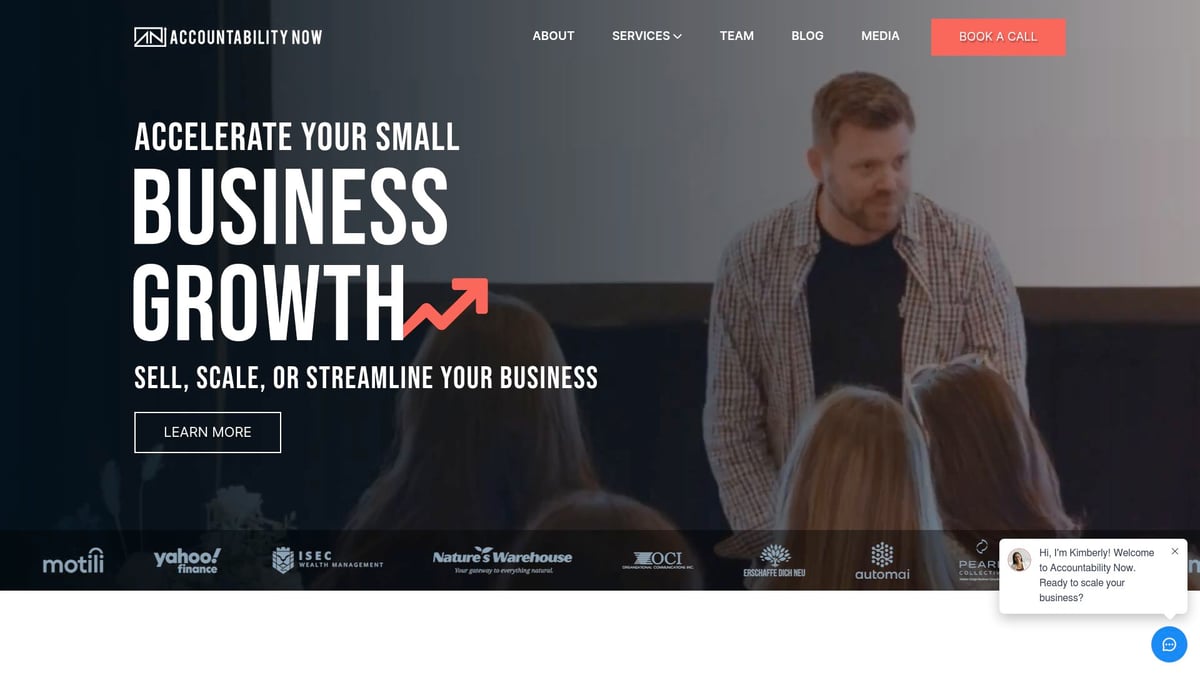
Core Features:
- Accountability frameworks
- Progress trackers
- Coaching session templates
- Goal-setting worksheets
Key Benefits:
These coaching resources streamline processes and boost client accountability. Tools are easy to implement and adaptable, making them suitable for a variety of coaching styles.
Target Audience:
- Life coaches
- Executive and team coaches
- Consultants
Pros:
- Practical, ready-to-use tools
- Supports measurable client outcomes
Cons:
- May need adaptation for specialized practices
Example:
Many professionals rely on Accountability Now’s coaching resources to drive consistent client results and improve follow-through.
How to Choose the Right Coaching Resources for Your Practice
Selecting the right coaching resources can determine the trajectory of your coaching practice in 2025. With so many options available, it is crucial to align your choices with your unique coaching niche, client needs, and long-term professional goals. Start by reflecting on the types of clients you serve and the challenges they face. Are you focused on executive leadership, career transitions, wellness, or diversity and inclusion? Identifying your primary focus will help you filter out coaching resources that are not tailored to your specialty.
Next, weigh the importance of evidence-based content versus experiential learning. Evidence-based coaching resources, such as those grounded in research and data, offer credibility and measurable outcomes. Experiential resources, like peer-led workshops or live group coaching, can provide practical skills and real-world perspectives. A balanced approach often yields the best results, ensuring coaches remain current while also embracing hands-on learning.
When comparing coaching resources, consider the following criteria:
| Criteria | Why It Matters | Example |
|---|---|---|
| Scalability | Supports growth and larger client base | Digital platforms, group tools |
| Integration | Fits with your workflow and systems | Syncs with calendars, CRMs |
| Accessibility | Easy for you and clients to use | Mobile apps, cloud access |
| Ongoing Support | Ensures updates and troubleshooting | Community forums, live help |
| Pricing | Matches your budget and ROI expectations | Subscription, one-time fee |
Scalability is especially vital if you plan to expand your practice or work with organizational clients. Look for coaching resources that integrate smoothly with your existing workflow, such as calendar tools, video platforms, or client management systems. Accessibility is also key, especially for remote or international clients. Prioritize solutions that offer mobile access and user-friendly interfaces.
Community and peer support can make a significant difference in your professional growth. Engaging with coaching communities provides access to fresh insights, networking opportunities, and collective problem-solving. Balancing digital coaching resources with in-person or live experiences ensures you remain adaptable and relevant, especially as hybrid coaching becomes the norm.
Feedback and measurable outcomes should guide your ongoing resource selection. Use analytics, client surveys, and progress trackers to assess which coaching resources deliver the most value. Continually refine your toolkit based on results and emerging trends.
For example, an executive coach may prioritize evidence-based leadership diagnostics and compliance-focused platforms, while a wellness coach might seek out holistic frameworks and accountability tools. Both benefit from scalable solutions and strong community support but differ in their specific resource requirements.
Maximizing the Impact of Coaching Resources in 2025
In 2025, the true value of coaching resources lies in how effectively you integrate them into your coaching practice. With the right approach, you can elevate both your client outcomes and your professional growth.
Integrating Coaching Resources for Daily Impact
Begin by mapping your workflow and identifying where coaching resources can create the most value. For example, use digital learning platforms for ongoing education and integrate assessment tools into client onboarding.
A simple table can help visualize integration points:
| Resource Type | Integration Point | Benefit |
|---|---|---|
| Digital Learning | Weekly skill development | Knowledge update |
| Assessment Tools | Initial sessions | Baseline measurement |
| Community Platforms | Peer review and discussion | Shared insights |
| Templates/Frameworks | Session planning | Consistency and focus |
By embedding coaching resources into daily routines, you ensure that growth is continuous and measurable.
Leveraging Analytics and Feedback Tools
Analytics and feedback are vital for tracking client progress and refining your approach. Many coaching resources now offer dashboards, progress trackers, and reporting features.
Utilize these tools to:
- Set clear client goals and milestones.
- Monitor engagement and satisfaction trends.
- Adjust strategies based on outcomes.
For deeper insights on fostering accountability, explore Accountability in Coaching, which highlights proven techniques to boost client follow-through. Using analytics not only demonstrates tangible results but also helps you adapt quickly to changing client needs.
Staying Current and Building a Personal Toolkit
Continuous learning is essential for staying ahead in the coaching field. Dedicate time each month to explore new coaching resources, attend webinars, and review the latest research.
Build a toolkit that blends:
- Digital platforms for flexible learning.
- Community resources for networking and peer support.
- Assessment tools for data-driven coaching.
This mix keeps your practice innovative and ensures you always deliver top-tier value to clients.
Collaboration and Adapting to Hybrid Environments
Collaboration with other coaches expands your knowledge base and exposes you to new coaching resources. Join professional networks, participate in online forums, and attend virtual events.
Adapting to remote or hybrid environments means selecting resources that work seamlessly across settings. Look for platforms with mobile access, virtual meeting integrations, and cloud-based templates. This flexibility allows you to support clients wherever they are.
Measuring ROI and a Real-World Success Story
To gauge the effectiveness of your coaching resources, track metrics such as client satisfaction, goal attainment, and business growth. Many coaches have scaled their practices by combining analytics, community support, and accountability frameworks.
One success story: A leadership coach leveraged digital platforms, peer communities, and tools from Accountability Now to streamline workflows and improve client results. By continually refining their toolkit, they achieved measurable growth and higher client retention.
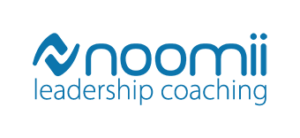
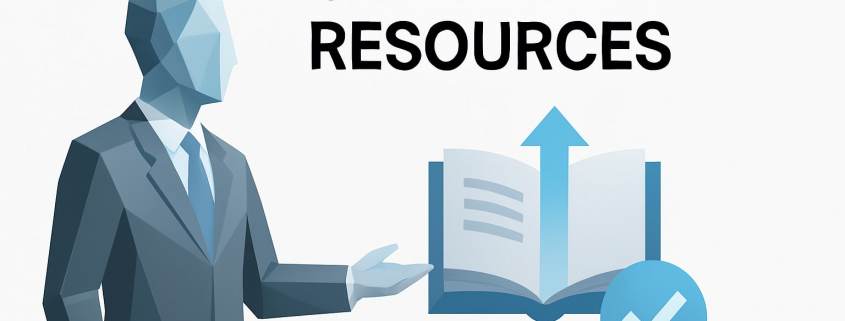


Leave a Reply
Want to join the discussion?Feel free to contribute!